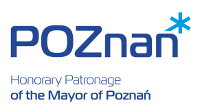PLM2016 Thematic session: Doubtful cases: A fresh look
Conveners: Renata Szczepaniak, Johanna Flick, Melitta Gillmann, Annika Vieregge (Universität Hamburg)
The contact person for this thematic session is Renata Szczepaniak (e-mail: renata.szczepaniak@uni-hamburg.de).
Languages allow expressions that differ only formally but are semantically equivalent (e.g. GERM wegen dem Unwetter or wegen des Unwetters ‘because of the-DAT.SG storm[DAT.SG]/the-GEN.SG storm-GEN.SG’, ENGL She dove/dived into the water, POL Jedziemy do supersamu/do supersama ‘We are going to the supermarket-GEN.SG’). The existing variants are often explained to fulfil complex indexical functions (JOHNSTONE in press, TRUDGILL 2011, DAVIES/LANGER 2006, HARNISCH 2004 among others) and to be linked to different categories like conceptual orality/literacy (KOCH/OESTERREICHER 2007), diastratic, diaphasic or diatopic variables or to spoken or written medium. This section draws a different perspective and addresses the question how the speakers/writers deal with particular variants: facing these interchangeable forms, competent speakers may doubt which one to use in a particular situation. In accordance to KLEIN (2003) we call such variants doubtful cases.
Some doubtful cases have already been approached empirically, mostly from a language systemic perspective on the choice of variants (see BUBENHOFER/HANSEN-MORATH/KONOPKA 2014 among others). However, for a comprehensive understanding of the phenomenon of doubtful cases, which includes the doubting speaker's perspective, a fresh look at the data as well as new methodological means are necessary, e.g. experimental studies, analysis of metalinguistic discourse, and corpus-driven research. Important questions are: Who doubts and when? How do we know that speakers/writers actually doubt? To what extent does the medium (written vs. spoken language) or the communication conditions give rise to doubts? How much impact does the salience (AUER 2014) of a particular doubtful case exert? Which role does the prestige of one formal variant play (SZCZEPANIAK 2014)?
In this session we invite scholars to explore these different aspects of doubtful cases in different languages. We welcome talks on systemic and/or sociolinguistic variation, on the speaker's view and on the lay discourse. Contributions from corpus linguistics, discourse analysis, experimental linguistics, and psycholinguistics are invited, as well as contributions discussing the treatment of doubtful cases at school.
Details of abstract submission are available here.
References:
Auer, Peter (2014): Anmerkungen zum Salienzbegriff in der Soziolinguistik. In: Linguistik online, pp. 7–20.
Baumann, Carolin; Dabóczi, Viktória (2014): Umnutzung entgegen des Sprachwandels: Irreguläre Flexionsformen als Prestigeträger? In: DIAGONAL (35), pp. 251–274.
Bubenhofer, Noah; Hansen-Morath, Sandra; Konopka; Marek (2014): In: Zeitschrift für Germanistische Linguistik 42 (3): pp. 379–419.
Davies, Winifred; Langer, Nils (2006): The Making of Bad Language. Lay Linguistic Stigmatisations in German: Past and Present. Frankfurt am Main: Peter Lang.
Harnisch, Rüdiger (2004): Morphologie. In: Ammon, Ulrich; Burkhardt, Armin; Ungeheuer, Gerold (ed.): Handbücher zur Sprach- und Kommunikationswissenschaft. Berlin, New York: de Gruyter, pp. 522-529
Johnstone, Barbara (in press): Enregisterment: Linguistic form and meaning in time and space. In: Busse, Beatrix; Warnke, Ingo H. (ed.): Handbuch Sprache im urbanen Raum Interdisziplinäre Perspektiven der Stadtforschung. Berlin, New York: de Gruyter. Available at: http://works.bepress.com/barbara_johnstone/66/
Klein, Wolf Peter (2003): Sprachliche Zweifelsfälle als linguistischer Gegenstand. Zur Einführung in ein vergessenes Thema der Sprachwissenschaft. In: Linguistik online 16 (4), pp. 5–33.
Koch, Peter; Oesterreicher, Wulf (2007): Schriftlichkeit und kommunikative Distanz. In: Zeitschrift für germanistische Linguistik 35, pp. 346-375.
Szczepaniak, Renata (2014): Sprachwandel und sprachliche Unsicherheit: der formale und funktionale Wandel des Genitivs seit dem Frühneuhochdeutschen. In: Plewnia, Albrecht (ed.): Sprachverfall? Dynamik, Wandel, Variation. Berlin [u.a.]: de Gruyter Mouton (Jahrbuch des Instituts für Deutsche Sprache, 2013), pp. 33–49.
Trudgill, Peter (2011): Sociolinguistic typology. Social determinants of linguistic complexity. Oxford, New York: Oxford University Press.
The abstract submission deadline for this session is extended until March 30, 2016. Other details of abstract submission are available here.
